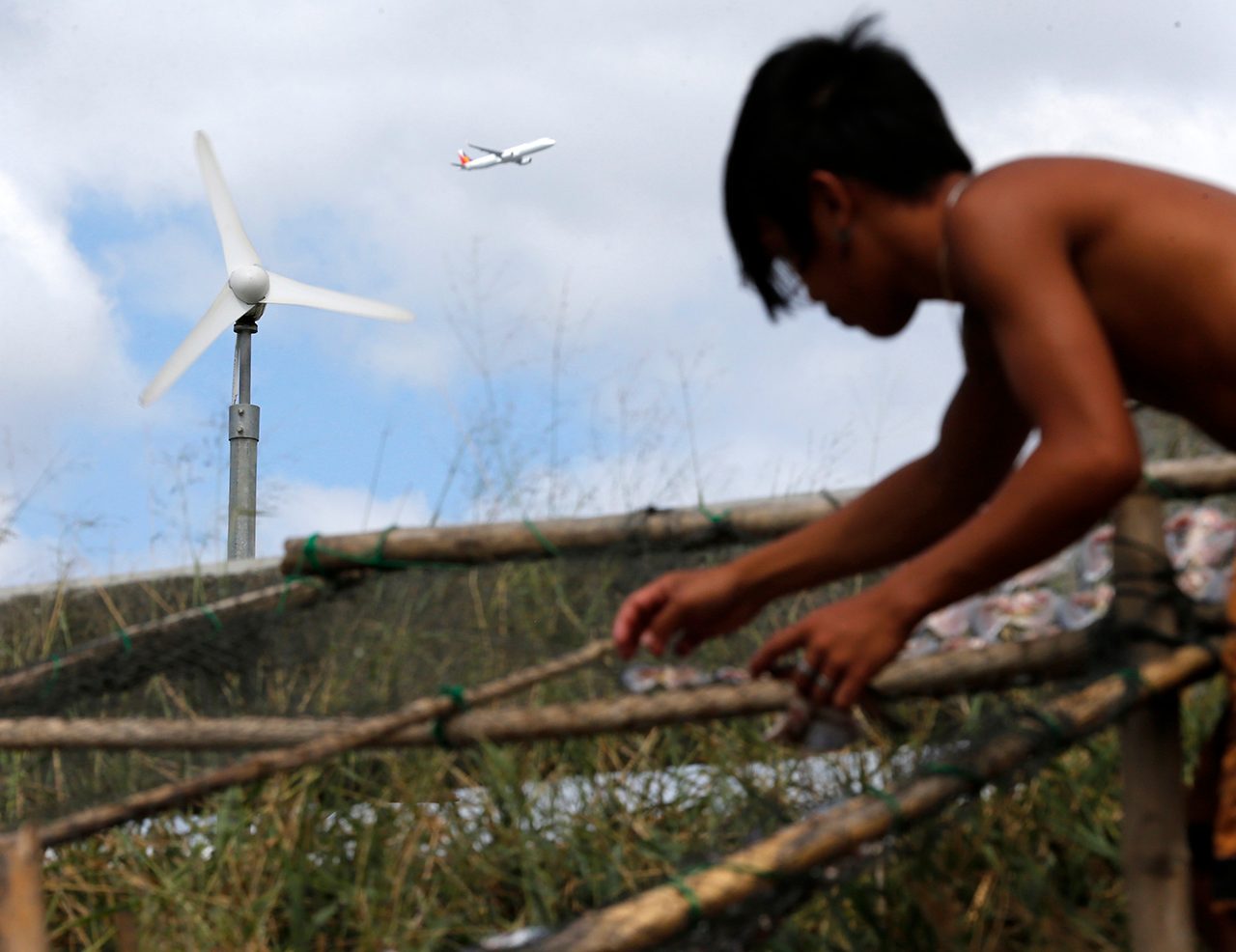SUMMARY
This is AI generated summarization, which may have errors. For context, always refer to the full article.

When I listened to the presidential candidates express their views on climate change and renewable energy during the debate last March 20, I was extremely disappointed with their responses. (READ: Cebu presidential debate shows candidates’ weak climate stance)
Davao City Mayor Rodrigo Duterte had stated that the United Nations (UN) should not impose sanctions on low emitters of carbon dioxide such as the Philippines. He added that the UN should instead provide funding for the renewable development in these countries.
This statement perfectly captures why I want a future without fossil fuels for my country.
The Philippines is currently the fastest growing economy in Asia, characterized as “high-carbon growth” due to its reliance on non-renewable energy.
Fossil fuels produce 72% of the country’s electricity requirement, nearly half of which comes from coal. Only 28% is sourced from renewable energy, which is predominantly geothermal energy and hydropower. (READ: PH reliance on coal contributes to climate change – groups)
The country, however, actually provides an ideal location for generating more renewable energy. Its location in the tropics, surrounded by oceans along the monsoon belt, gives the country tremendous potential for hydropower, wind, and solar energy.
The Department of Energy (DOE) lists a technical potential of 13,097 megawatts (MW) of hydropower, 7,404 MW of wind energy, and nearly 300,000 square kilometers worth of solar energy in the Philippines, which would be sufficient to provide electricity for the entire country.
This enormous potential gives the Philippines a great opportunity to capitalize on promoting investments in renewable energy, which is the fastest growing energy sector in the world.
However, efforts by the government to develop such resources have been underwhelming. The main argument of those in favor of continued reliance on fossil fuels has been that renewable energy is more expensive than fossil fuels.

The case for renewable energy
First, the cost of renewable energy has been dropping drastically in the past decade. Companies around the world, such as Apple, Amazon, Wal-Mart, and General Motors, have been making the shift.
The trend is also becoming more popular in the private sector in the Philippines, as more corporations express support for sustainable energy sources in advocacies and business ventures.
Even former energy chief Jericho Petilla stated that the electricity generated from rooftop solar panels is cheaper than electricity from a coal-fired power plant by as much as P3 per kilowatt-hour.
This development is crucial for the growth of solar energy, which currently covers less than 1% of the country’s electricity needs. (READ: Coal-minded leaders left behind by green energy growth – Al Gore)
Second, the environmental and health costs of energy generated from fossil fuels are not included in the prices paid for such energy, which has fed the fallacy of renewable energy being too expensive to be considered a practical alternative.
Studies conducted by organizations such as Greenpeace, IMF, and GIZ reveal that these externalities ultimately cost both the government and the private sector billions of dollars that could have been used for other programs to promote sustainable development.
However, government policies have shown an indecisive, conflicting approach to shifting the country away from fossil fuels.
Despite the key role that the Philippine delegation played in drawing up the climate change agreement during COP21, the Aquino administration supports the construction and operation of 29 new coal-fired power plants by 2020.
A DOE official bluntly admitted during a workshop organized by the Health Care Without Harm coalition last March that health impacts are not included in assessing the costs of operating coal-fired power plants.
Such actions will undoubtedly put the population in an unsafe and unprofitable environment in the long run. (READ: Why PH should commit to being fossil fuel free)
Poverty, poor health care, and food security are only a few of the major issues that Filipinos have to face. These dilemmas will be exacerbated if we do not fully commit to the fight against climate change.
Dealing with the new climate reality requires leaders who do not rely on political agenda, outdated information, and economic interests for their decision-making.
Even though our contribution to the global carbon dioxide emission rate is very small, that is not an excuse for our leaders to continue supporting coal-fired power plants.
Regardless of how much greenhouse gases we emit, the Philippines will remain one of the most vulnerable countries to the impacts of climate change.
We need to take the initiative in switching to renewable energy and show the rest of the world that a greener energy system is worth the economic risks feared by both the public and private sectors.
Taking a moral stand
The fight against fossil fuels is more than just a political and economic issue; it has become a moral stand that our next leader must support for the betterment of the people. (READ: Climate change is the new battleground for human rights)
Now, more than ever, the Philippines needs a president with long-term vision who keeps up with current developments and capitalizes on new technologies. We need a leader who understands the plight of the people and implements appropriate and efficient measures to ensure their safety and prosperity.
We need a leader who has both the political will and charisma to inspire others to spark widespread change in a country that desperately needs it.
So why does the Philippines need a future without fossil fuels?
It is a future where the energy needs of a country blessed with an abundance of resources is in rhythm and harmony with nature.
It is a future that assures a healthy, sustainable life for all people, especially the poor and vulnerable.
It is a future where everyone, from the leader to the common man, understands the value of renewable energy, and uses it efficiently to create a world that will last for future generations.
A future without fossil fuels is already at our doorstep. Do we have the courage to go into the world waiting behind it? – Rappler.com
John Leo Algo is a graduate student and climate researcher who also volunteers for WWF Philippines, the Haribon Foundation, and the Manila Observatory. He recently completed the Climate Reality Leadership Corps training hosted by Al Gore from March 14 to 16 in Manila.
Add a comment
How does this make you feel?
There are no comments yet. Add your comment to start the conversation.